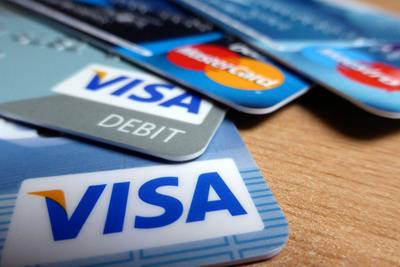
Wednesday September 18, 2019
By Andrew Ward
 420 Culture
420 Culture
Depending on where you shop, your cannabis dispensary may or may not have options for how you can buy your product. In some cases, you better have cash. Meanwhile, others allow for debit and sometimes credit. Some are even going more progressive than that. The payment options aren’t a matter of convenience. No shop making customers pay in cash-only are doing it by choice. Instead, they are bound by several sticking points that continue to affect businesses, banks, credit unions and the customer all in one fell swoop.
Why Can’t Dispensaries Operate Like Other Businesses?
Even if a state has legalized adult use cannabis sales, that does not mean the federal government is willing to step aside. Instead, federal law often creates a difficult situation that leaves cannabis businesses stuck with limited options to accept payments for their state-approved products.
Despite the growth of the industry, the government continues to instruct banks and credit unions not to do any business with the legal cannabis industry.
The end result leaves the industry largely unbanked, resulting in significant risk for anyone working in what is already becoming a global market. Some data and reports suggest that banks and credit unions are quietly doing business with cannabis despite the federal instructions. However, even if a bank accepts a cannabis business one day, it does not mean the company will have that relationship with their bank for long.
Pot Payments: What is Accepted at Dispensaries
Not all dispensaries accept the same forms of payment due to the volatile nature of cannabis banking. Current federal laws leave many dispensaries limited, if not outright blocked, from using cards of any kind to process payments.
As such, cash is the most often used form of payment at most dispensaries. Certified legal tender works in just about any transaction, cannabis included. Unfortunately, working in cash becomes quite tricky when banks won't work with your business. With no banking to turn to, dispensaries and other cannabis businesses can find themselves holding thousands, sometimes millions, in cash.

Some dispensaries accept credit and/or debit cards. Often, the relationships between the business and the processor or bank are tenuous. Most banks will not work with dispensaries or cannabis business. Payment processors are also known to cancel working relationships with companies. Some businesses find workarounds, like using different merchant codes or going so far as to open a shell company. However, these ideas often only extend the payment processing period for so long. More often than not, the business will lose these payment methods once its account activity is examined.
Federal regulations make using a credit or debit card the most difficult of all the payment options. As mentioned above, retailers must use workarounds to find a solution to the processing issues.
Breaching credit card rules using incorrect merchant codes and shell companies are just a few ways dispensaries have attempted to set up payment processing for their venture. While credit payments can be difficult to work around due to Visa and MasterCard’s networks, debit has served as an easier processing method for many in the space. Companies set up their debit-only payment methods using a point of banking system. In this system, instead of making a sale, the customer authorizes a cash withdrawal from their account. Once approved, the dispensary will take the withdrawal receipt and then give the customer any change they are due in cash from the register.
Cannabis has also attached itself to another global market disruptor to remedy its payment concerns. As Vice detailed, some dispensaries rely on services that inject cryptocurrency into the transaction by taking hard currency and moving to crypto before converting back to cash.
Latest News on Cannabis Payment Processing
The past several months have seen the first significant progress made in the cannabis industry's banking and processing options. The primary driver of the movement is The Secure and Fair Enforcement (SAFE) Banking Act, which was introduced in Congress in May 2017. Introduced by Oregon Senator Jeff Merkley, the bill would ban regulators from ending or lessening share insurance because a company works with a cannabis business.

More so, the SAFE Banking Act would also make it so that financial institutions could do business with cannabis companies. In May, a group of 38 attorneys general came out in support of the SAFE Act. The following month saw a U.S. House panel approve a spending bill which protects banks working with legal cannabis ventures from any repercussions. However, the current provision would only cover banks for one year. If passed, the SAFE Act would provide a much longer solution.
How do you pay for cannabis when visiting your favorite dispensary? Share your experiences in the comments below!
Photo Credit: Sean MacEntee (license)







